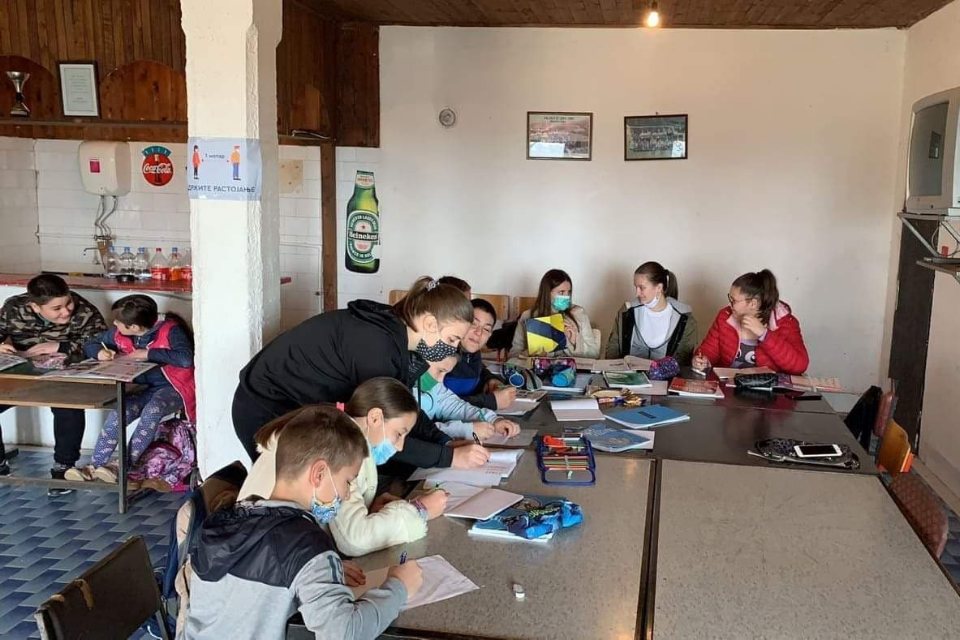Social service "Octopus" yields heartwarming response in Serbia
Date:

To ease the burden of women's unpaid chores during the COVID-19 pandemic, UN Women in Serbia launched an innovative GIZ-supported project named Octopus, reducing workload, unpaid work and opening space for their personal growth.
The COVID-19 pandemic has created additional burden for women, especially in rural areas, by the increase of demands in unpaid care work. It has significantly escalated their time spent on cooking, cleaning, managing the household, caring for and educating children.
To rapidly address these needs, UN Women in Serbia piloted an initiative in the Mionica Municipality in Western Serbia by designing an innovative and responsive short-term project, partnering with gender equality experts, a services design expert, and a local NGO Women Association of Kolubara District.
The end result was a hybrid, innovative project, befittingly named Octopus, providing as many as eight services to rural women of Mionica. These services are ranging from transportation services and educational support for mothers with school children, to women’s networking and psychological assistance, all based on a previously conducted survey aimed to pin-point exact needs.
‘With school largely switching over to online format, women found themselves unable to guide their kids on all subjects. To respond, we organized ‘after school’ help. Initially, only a few kids showed up. But quickly, we had to split kids into groups, while the subject matter quickly expanded to other subjects,’ said Jelena Ruzic from "Women Association of Kolubara District”(ZUKO).
According to Ruzic, psychological sessions for women were also a great success as the need among these women for human connection, comradeship, and dealing with life’s difficulties especially in the time of the pandemic were tangible. The sessions were conducted in groups of five to six women who were sharing their personal struggles.
One of the women was Slavica Ivanovic, from the village of Ducici in the Mionica municipality, whose husband suffered from Post-Traumatic Stress Disorder (PTSD) and she had to take care of him, her children and her parents. “Having the chance to talk to a psychologist who carefully listened to our stories, really meant a lot to all of us. I was especially happy to hear that she approves all of the techniques I used in the past when struggling through difficult times. It gave me motivation to share my experiences with other women,” said Ivanovic.
The project has continued past its planned timeframe, running purely on the fumes of local enthusiasm which is a clear testament to its quality, according to Tijana Milosevic from UN Women in Serbia. “The project has produced a baseline assessment of concrete needs, analysis of interests, participation, costs and satisfaction. This way, it has inadvertently provided all the information needed by a local government to plan and budget for the exact services that are provenly needed and appreciated,” Milosevic concluded.
To this end, ZUKO is working with the local self-government that has recently adopted gender-responsive budgeting and are working on a local gender equality action plan.